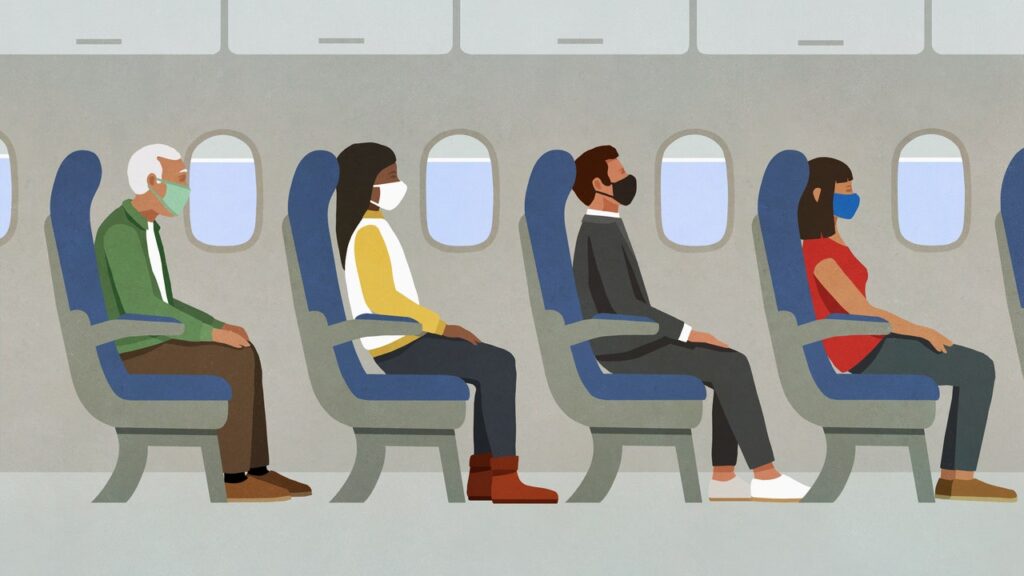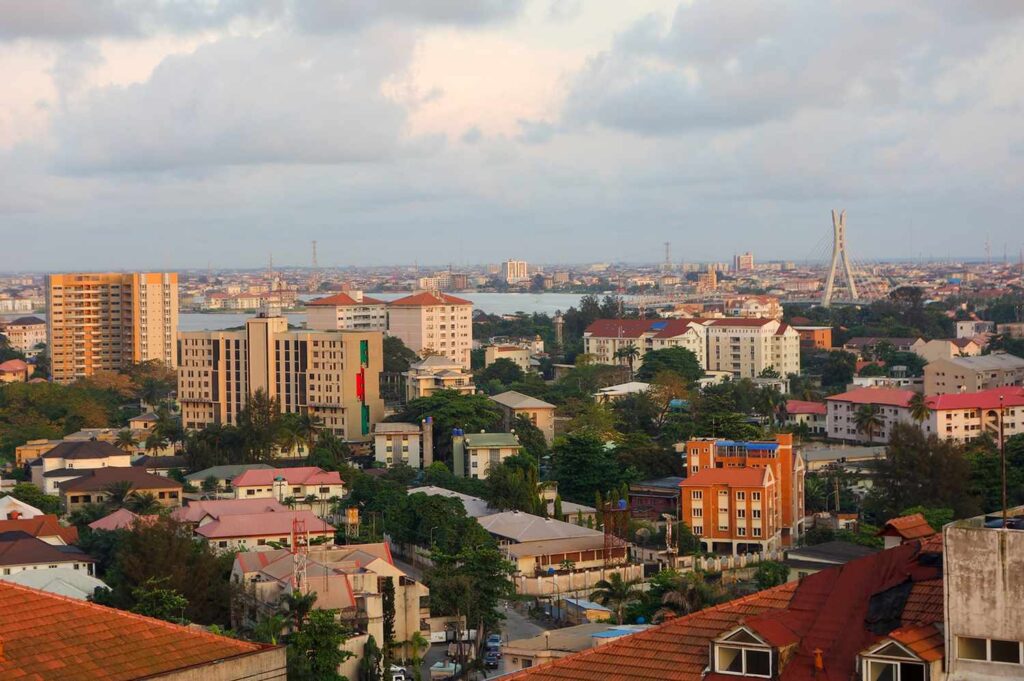Masks on planes: It’s a topic of conversation that has become more and more convoluted in the past few years. Gone are the mask requirements of 2020 through 2022, but that doesn’t mean taking precautions is a bad idea. That’s especially true amid the gauntlet of holiday air travel, when one of the most challenging tasks for fliers is staying healthy in overcrowded terminals and jam-packed plane cabins.
The Thanksgiving and Christmas season is usually when outbreaks of all sorts of nasty bugs and viruses start ramping up across the country. That’s what happened last year, when flu rates began climbing in early November and peaked in late December. COVID-19 followed a similar pattern, reaching a high point last year at the end of December and the beginning of January (following an earlier peak in the summer months). Around the same time as COVID’s winter peak, we also saw a rise in hospitalizations for RSV, a virus that causes mild cold-like symptoms for most people but can be serious for infants or older adults.
Given how things have played out in years past—and the fact that airports and planes are so crowded—you might be wondering: Will wearing a mask while flying help you avoid getting sick this season? The short answer is it might. Experts say wearing a face mask is still a reliable way to help decrease your chances of catching COVID or another bug that could ruin your travel plans—even though many others likely won’t be doing the same.
Related: How to Stay Healthy if You’re Traveling During Cold and Flu Season
“Ideally, in order to prevent transmission of respiratory viral infections more effectively, everyone should wear a mask. Unfortunately, that is unlikely to happen now,” says Bernard Camins, MD, an infectious disease expert for the Mount Sinai Health System. For that reason he stresses wearing a medical-grade mask like an N95 or KN95, both of which offer high filtration levels and a snug fit over the nose and mouth.
If for some reason you can’t find an N95, don’t rule out plain surgical masks: They can help stop some viral infections. “Surgical masks can still protect against flu, RSV, and even COVID, although KN95 and N95 masks are more protective,” Dr. Camins says. But they can’t filter out everything. “Surgical masks are ineffective against rhinovirus, the virus that causes the common cold,” he adds. However, you can also make some simple tweaks to surgical masks to increase their effectiveness. “Double masking with a surgical mask and a cloth mask on top of it—to keep the surgical mask close to the face—can provide similar protection to KN95 masks,” says Dr. Camins. Even if you are the only one on the plane wearing a mask, it will reduce your risk of exposure—as long as you keep it on.


